- Home
- Paul Christopher
Red Templar Page 5
Red Templar Read online
Page 5
“U.K. is better for your Cuban pal than Puerto Rico. Lots of blacks in England these days. He speak any African?”
“Nenda kajitombe, mkundu,” said Eddie with a smile.
“I’m not even going to ask,” said Bondarenko. He picked up another passport, this one American. It belonged to a man named Michael Enright, a professorial-looking man about Holliday’s age, half-bald, with a silver-gray goatee and a pair of thick Harry Potter spectacles that made him look a little silly. Both the U.K. and U.S. passports were definitely genuine.
“Where do you get them?”
“I’ve got pickpockets at the train stations. Odessa, Kiev, Moscow, St. Petersburg. Airports, too. I buy them wholesale: two hundred per. Kids work the whole railway system like Gypsies. It’s the only kind of work they can find these days.”
“How do you work all the electronics and the biometrics?”
“I toss out biometric ones, just keep the older ones. I’ve got a laminator in the back and a heat delaminator as well. I print out your picture on ultrathin Mylar and drop it in over the existing one. We leave everything else the same, name, age and all that.”
“All right,” said Holliday.
“Let’s see your plastic.”
Holliday reached into his wallet and took out the Carte Bleue card that he’d found in the safety-deposit box after reading Helder Rodrigues’s bloodstained notebook. He never got printed statements, and apparently the account it drew against was infinitely large. He handed the card to Bondarenko. “How long is this going to take?”
“No time at all. Half an hour or so. I’ll take your pictures and get right at it.”
“All right,” said Holliday.
Bondarenko stood up and then paused, a thoughtful expression on his face. “Where are you guys going?”
“Do you have to know that?”
“No, but it’s better if you don’t fly. The cops here are pretty uptight about airport security after all these crazy suicide bombings.”
Holliday thought about the Korovin.25 and the Stechkin APS he and Eddie were still carrying.
“What do you suggest?”
“Train. The cops at all the stations are usually local militsiya. Slobs. Except for Moscow, maybe. Everyone travels by train. You’ll fit in better.” He glanced at Eddie again. “If that’s possible,” he added.
“Okay.” Holliday nodded.
“While I’m doing the documents you should go down to the market and get some luggage, backpacks or something.” Bondarenko crossed the room, opened a cupboard and returned with a Nikon D3X. Now Holliday knew what the blank white space on the wall was for.
“Since you’re being so helpful, Gennadi, maybe you can get something else for us,” said Holliday.
“Yeah?”
“Ammunition. Twenty-five-caliber hollow-point and nine-millimeter Parabellum.”
Bondarenko gave Holliday a long, thoughtful look and nodded slowly. “Sure, I could do that, but if the militsiya or the OMON catch you, you never met me, okay?” The OMON were special police units stationed in every district. They were the Russian equivalent of an American SWAT team.
“Okay,” agreed Holliday.
“How much you want?”
Holliday thought about it for a second. The Stechkin on full auto went through bullets like popcorn. “Five hundred of the nine and a hundred of the twenty-five.”
“I can do that,” said Bondarenko. He paused again. “Just in case you and your friends are going through Belarus I’ll throw in the transit visas for nothing-it’s just a stamp.”
“Thanks,” answered Holliday. “If that’s everything, why don’t you get your credit card swiper and we’ll let you get to work.”
“No problem,” said the Ukrainian with a pleasant smile. “I can do it myself.”
“No, you can’t,” said Holliday. And he wasn’t smiling at all.
At six thirty-one that evening the three men carrying the passports and transit visas of Michael Enright, Simon Toyne and Andre Belekonev left the city of Odessa on Russian Railways train number twenty, the Pivdenny Express fast train to St. Petersburg. Thirty-four hours later, they arrived in the city of the czars.
Less than twelve hours after their departure, Gennadi Bondarenko and his girlfriend, Natasha Bohuslava Shtokalo, were found brutally murdered and their apartment ransacked. Bondarenko had been tortured savagely before he’d been killed by a bullet to the back of the head, and gaspazha Shtokalo had been raped a number of times before receiving the same treatment.
In a statement to the press, Odessa colonel of militsiya Yuriy Fedorovych Kravchenko stated that Gennadi Bondarenko was a well-known member of the criminal establishment and the murders were clearly gang related. In addition, robbery might well have been a motive, since there was some evidence that Bondarenko dealt in large amounts of cash. There had also been rumors that Bondarenko might have been soliciting for gaspazha Shtokalo’s services as a prostitute, although that had not as yet been confirmed.
When queried, Colonel of Militsiya Kravchenko said that neither he nor his lead investigators had any expectations of making any arrests in the near future; nor did he care. The prosecutor’s office had no interest in going forward with the investigation and he didn’t either. As the policeman bluntly put it: “The deaths of these two people simply means that there are two fewer criminals on the streets of the Odessa Oblast.”
9
Genrikhovich lived in an old five-room apartment in a nineteenth-century stucco building on Nevsky Prospekt not far from the train station and the Hermitage. By old-fashioned Soviet standards it was lavish, sharing a bathroom and toilet with only one other apartment and having a kitchen of its own.
The apartment had apparently been assigned to his grandfather by the local party committee shortly after the revolution. His grandfather, curator of the Hermitage’s Treasure Gallery, raised Genrikhovich’s father there, and he in turn passed it along to his son.
Genrikhovich’s wife had fled for greener pastures after the fall of the USSR in 1991, and Genrikhovich had lived alone in the apartment ever since. The furniture was of the large, dark, Victorian variety, the chairs old, worn and comfortable, the lamps fringed. There were books everywhere, and where there weren’t books there were paintings, mostly small and gilt framed, some with their own little lamps and virtually all of them horticultural or seascapes.
Genrikhovich excused himself and left the apartment to use the toilet facilities. Holliday wandered around the living room while Eddie sank gratefully into a plump, overupholstered chair.
Holliday checked out the bookcase and frowned. Like the paintings, many of the books were about horticulture and the sea. Erskine Childers’s TheRiddle of the Sands; Aero-Hydrodynamics and the Performance of Sailing Yachts by Fabio Fossati; Illustrated Custom Boatbuilding by Bruce Roberts-Goodson; The Gardens at Kew; The Gardener’s Essential Gertrude Jekyll; Botanica’s Trees amp; Shrubs; The No-Work Garden by somebody named Bob Flowerdew, which had to be a pseudonym; David Austin’s English Roses; the bookcase was packed with them.
He stepped over to what was obviously Genrikhovich’s “comfy chair,” a Russian version of a La-Z-Boy recliner with a perfectly placed reading lamp and a side table stacked with books and magazines.
Holliday looked at the titles: WoodenBoat,Hortus, The Marine Quarterly. On top of the pile was a paperback called Black Fish by Sam Llewellyn, a sailing thriller. Holliday seemed to recall that he’d read some of Llewellyn’s early historical novels and quite liked them.
“I smell a rat,” said Holliday.
“?Una rata!” Eddie said, jumping up out of his chair. “?Adonde va?” He whirled around frantically. “?Odio las ratas!”
“The books and the magazines,” said Holliday. “They’re all in English. I thought Genrikhovich didn’t speak any English.”
“?No hay ratas?” Eddie said, confused. “There is no rat?”
Genrikhovich came back into the room. “I’m sorry to have deceived you,
Colonel Holliday,” the Russian said, his English tinged with a slight Oxford plumminess. “I assure you that it was entirely necessary, given the circumstances.”
“Sorry isn’t good enough,” snapped Holliday angrily, turning to face the Russian. “I’m in a shitload of trouble with the secret police because of you. People are dead because of you, Mr. Genrikhovich, and now I find out you’ve been lying to me.”
“It’s Dr. Genrikhovich, Colonel Holliday,” said the Russian stiffly. “And as I have already informed you, my deception was completely necessary.”
“You’ll have to explain that,” said Holliday. He dropped down in one of the stuffed chairs. Genrikhovich sat down in the recliner. Eddie stood for a moment longer, scanning the baseboards carefully and muttering in Spanish. He finally seated himself again.
“I know who you are, Colonel Holliday, and more important, I know what you are.”
“So who and what am I?”
“In effect, you are the keeper of the king’s keys; do you know what that is?”
“I’m a historian, Genrikhovich; of course I know what it is. It’s what they sometimes call the chief yeoman warder of the Tower of London. For seven hundred years the chief yeoman has locked up the Tower every night at exactly nine fifty-three; he goes through a pass-and-be-recognized ceremony with the sentry.” He recited the ancient exchange:
Who comes there?The keys.Whose keys?The king’s keys.Pass, king’s keys. All’s well.
Holliday frowned. “But I’m not sure what any of that has to do with me.”
Genrikhovich smiled. “In this case the king in question happens to be Czar Nicholas the Second, emperor and autocrat of all the Russias, and now formally recognized by the Russian Orthodox Church as Saint Nicholas the Passion-bearer.”
“I still don’t see the connection,” replied Holliday, his voice stubborn.
“You perform the same function within your order. With the exception of Brother Dimitrov at the monastery outside Ahtopol, you are the last of the White Templars, the keeper of their keys, their secrets, their wealth and their power.”
“Fairy tales, Genrikhovich. There are no Templars, and the original Templars were anything but ‘white.’ They were bankers, builders, spies and speculators. Somewhere on the Pilgrim Road they lost their way. I’m not convinced they ever found it again.”
“A cynical point of view, Colonel.”
“I’ve fought in half a dozen wars, some legitimate, some not. Scratch any soldier my age and you’ll find a cynic; believe me. I’ve seen too many boys with their guts all over the ground calling for their mothers to be anything but cynical, especially when it comes to the activities of medieval mercenaries hiding behind a cross.”
“You imply they do no good at all.”
“I don’t know one way or the other.”
Genrikhovich smiled calmly. “Yet here you are, Colonel, and no one forced you to fight for your country or for the downtrodden of other lands. You did it by choice. Free choice, Colonel. Your choice.”
Holliday thought about what the Russian had said and suddenly realized that he had no pat answer to the question. In fact, the question had touched a nerve somehow. Why was he here? Why had he taken the notebook from Rodrigues in the first place? He’d taken on an enormous responsibility and he wasn’t really sure whether he knew why. Was it some quest for a faith or a purpose that had eluded him all his life, or was it simply a knee-jerk call to duty he’d been trained for all these years? Don’t think, do. The question nagged. He changed the subject.
“Let’s get back to the matter at hand, Dr. Genrikhovich. Let’s connect the dots, shall we?”
“By all means.”
“You lied to me about speaking English. Why?”
“Because I didn’t want there to be any hesitation or suspicion on your part when I spoke Russian to the people we will surely need to talk to on our journey. Your friend Gospodin Cabrera will provide you with the reassurance that what I say to these people is what I say to you.”
“What exactly is this journey we’re supposedly going on?”
“We know of three of the Templar swords. We must find the fourth.”
“Why is it so important?”
“It will lead us to the Apophasis Megale, the Great Declaration of Simon Magus, just as Brother Dimitrov explained.”
“And the key to the location of the sword is somehow held within the Kremlin Easter egg?”
“Yes, also as Brother Dimitrov told you.”
“And how do you come to know this?”
“It is a long story, Colonel.”
“I’m not doing anything else at the moment except being chased by your New Age KGB friends. I’ve got plenty of time.”
“They are not my KGB friends, Colonel. If you will recall they were shooting at me on that road as well as you.”
“The story,” Holliday prompted.
“Have you ever seen a photograph of Czar Nicholas the Second and George the Fifth standing together?”
Another crazy question that didn’t seem to have anything to do with anything. “Not that I can recall,” answered Holliday, irritated and exasperated by Genrikhovich’s pedantically convoluted speeches. The man could have been a professor droning along in a lecture hall filled with bored students. The thought brought him up short; he’d done just that for more than ten years at West Point.
Genrikhovich cleared his throat and began speaking again. “Many people commented that they looked like brothers. Wearing the same clothes they looked like twins, although there were three years between them.
“The truth is that, while certainly not twins, the two men were half brothers, both sired by Edward the Seventh but birthed by different mothers. In the czar’s case the woman was Empress Consort Maria Feodorovna, the wife of Edward’s cousin, the czar Alexander the Third, while George’s mother was Alexandra of Denmark, Edward’s wife at age seventeen.”
Holliday sighed. “Does all this information lead somewhere?”
It was Genrikhovich’s turn to sigh. “Of course it’s leading somewhere, Colonel. If I wanted to give lectures just to hear myself think I could do so at St. Petersburg State University, nyet?”
“Sorry,” apologized Holliday, not quite meaning it. “Go on.”
“The point I am endeavoring to make is that the two royal families were closer than even history tells us. The generally accepted reason for George the Fifth’s not rescuing his cousin the czar and the czar’s family during the 1917 revolution is that he feared just such a revolution in his own country. The facts offer a much simpler reason for King George’s inaction-he was afraid that with his half brother in England there would be a dispute over the line of succession for the throne of the British Empire. There were already grassroots rumors of the two men’s common father, and being the elder son, Nicholas would have had a legitimate claim. Had the czar shown any indication after his arrival in the British Isles of wanting the throne, there would have been chaos. The war was already bankrupting England; scandal over the monarchy would’ve been a disaster.”
“And this relates to the four swords how?” Holliday asked.
“Both the czar and King George were members of the Templar order, and both were well aware of the dangers presented should anyone discover the secret held by the upper echelons of the Order of the Phoenix. Unfortunately, the czarina, Alexandra, became smitten with the monk Rasputin. In exchange for the key to the Phoenix secret, he promised to cure young Alexi, her young hemophiliac son.
“When King George learned of this he ordered his director of military intelligence, Sir Matthew Smith-Cummings, to-and I am quoting His Royal Highness here-‘deal with the problem of the Russian monk.’ Smith-Cummings then contacted the British ambassador in St. Petersburg, Sir George Buchanan, who dispatched three agents, Oswald Rayner, Captain Stephen Alley and Captain John Scale, to do the deed.
“All three men had close ties with Prince Felix Felixovich Yusupov, who organized the plot to rid the czar of Ra
sputin. Rayner and Scale had known Yusupov at Oxford. Stephen Alley had been born at the Yusupov Palace, where his father was one of the prince’s tutors. He was a boyhood friend. Although most witness reports mention Rayner as being present, all three agents were present.
“It was Rayner who fired the fatal shot, however; of that there is little doubt. Rasputin took the key to the Phoenix secret to his watery grave in the Moika Canal, and for a hundred years it has been assumed that the secret was safe. It is only recently that a number of facts have come to light that would seem to indicate otherwise.”
“Quite the story,” said Holliday. “The king of England, the czar of Russia, Rasputin the Mad Monk, Vladimir Putin’s grandfather, Joseph Stalin, George Bush’s great-grandfather. . who’s next, the president of the United States?”
“No, Colonel Holliday, your president at the time, Woodrow Wilson, was only peripherally concerned,” Genrikhovich said blandly. “However, William McAdoo, secretary of the treasury and the first chairman of the board of governors, was deeply involved. His actions in 1916 and 1917 are still having repercussions today.”
Holliday gave a dull laugh. “You make this sound like one of those new world order conspiracies the Internet prattles on about.”
Genrikhovich shook his head. “There is nothing at all conspiratorial about it, Colonel. No one is trying to take over the world. Vladimir Putin simply intends to buy it, piece by piece; what he cannot buy he will subvert through power, fear or threat. He has begun the process already by co-opting the Orthodox Church in Russia to consolidate his power within the Federation. His next step is to find the key that was lost-the key that was known to Rasputin, the key that was the reason behind the creation of the four swords of Pelerin.
“Prime Minister Putin was once in the KGB, and much of his internal power stems from his control of the present-day FSB. I’m sure he is aware that you are the owner or at least caretaker of Hesperios, Sword of the West. I have no doubt that this is the reason for the pursuit following our meeting with Brother Dimitrov. He knows you are in Russia and he is hunting you; this is certain. One way or another you have very little choice. Either you help me find the location of the Great Declaration and destroy it before Putin gets it, or you will almost surely be killed.”

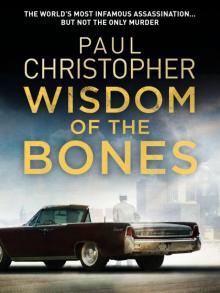 Wisdom of the Bones
Wisdom of the Bones The House of Special Purpose
The House of Special Purpose The Second Assassin
The Second Assassin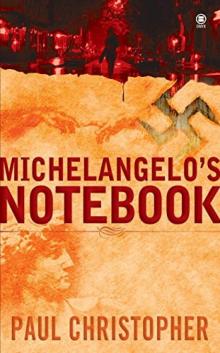 Michelangelo's Notebook
Michelangelo's Notebook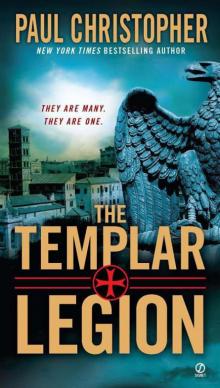 Templar Legion
Templar Legion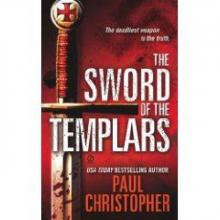 The Sword of the Templars t-1
The Sword of the Templars t-1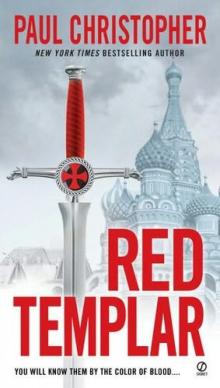 Red Templar
Red Templar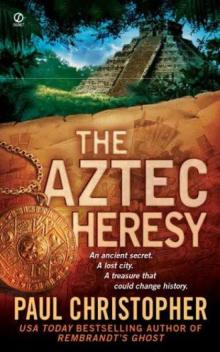 The Aztec Heresy
The Aztec Heresy The Templar Legion
The Templar Legion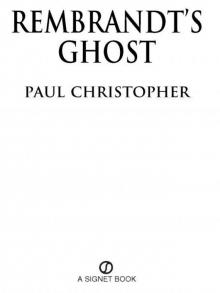 Rembrandt's Ghost
Rembrandt's Ghost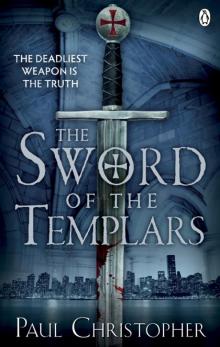 Sword of the Templars
Sword of the Templars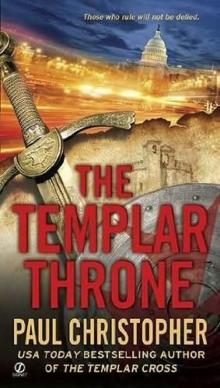 The Templar throne t-3
The Templar throne t-3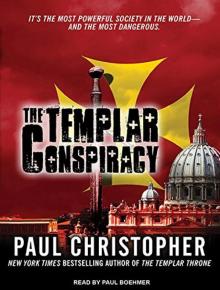 The Templar Conspiracy
The Templar Conspiracy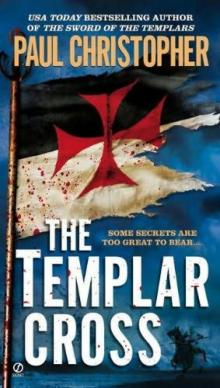 The Templar Cross t-2
The Templar Cross t-2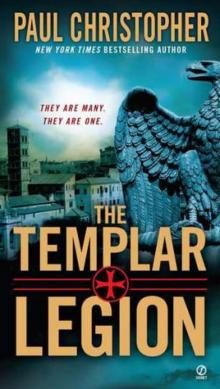 The Templar Legion t-5
The Templar Legion t-5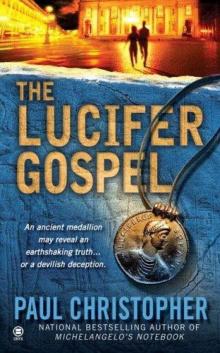 The Lucifer Gospel
The Lucifer Gospel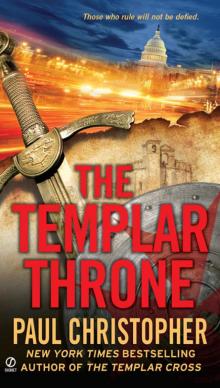 Templar Throne
Templar Throne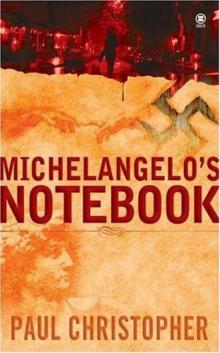 Michelangelo_s Notebook fr-1
Michelangelo_s Notebook fr-1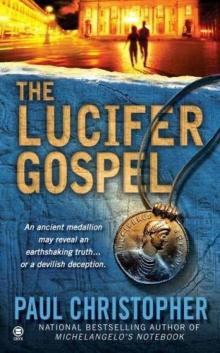 The Lucifer Gospel fr-2
The Lucifer Gospel fr-2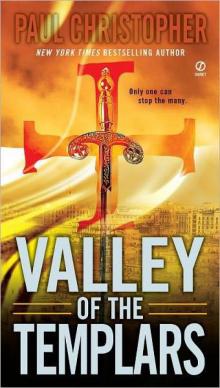 Valley of the Templars ts-7
Valley of the Templars ts-7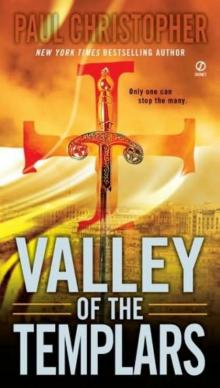 Valley of the Templars
Valley of the Templars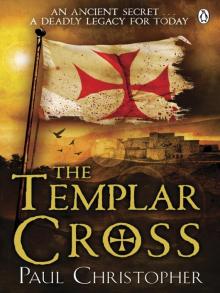 Templar Cross
Templar Cross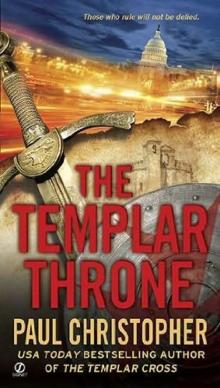 The Templar Throne
The Templar Throne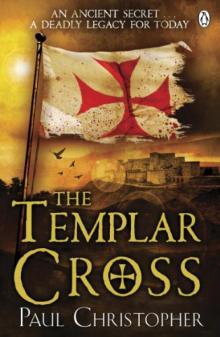 The Templar Cross
The Templar Cross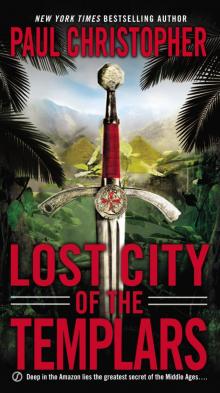 Lost City of the Templars
Lost City of the Templars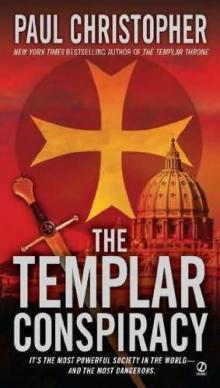 The Templar conspiracy t-4
The Templar conspiracy t-4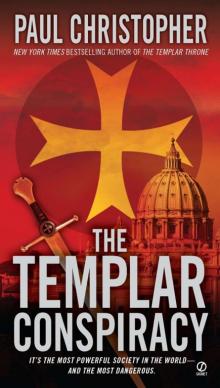 Templar Conspiracy
Templar Conspiracy